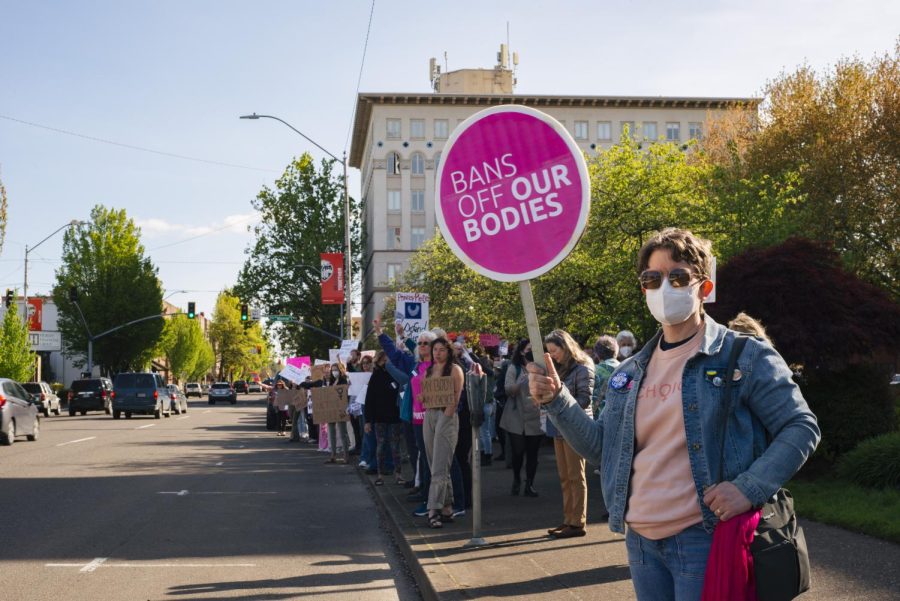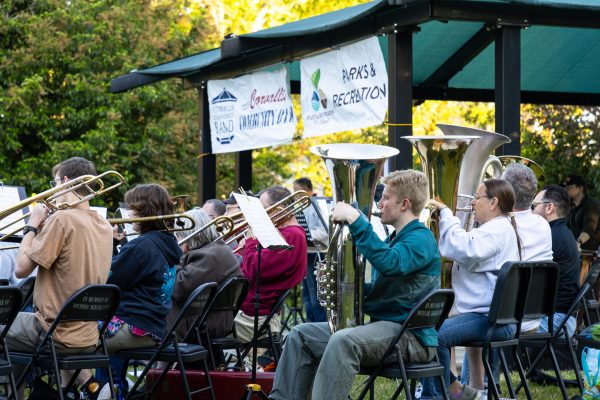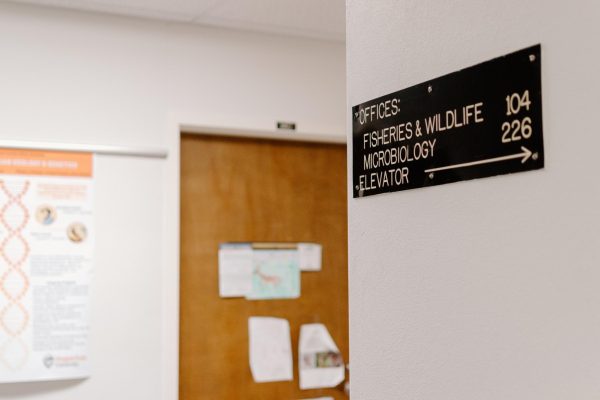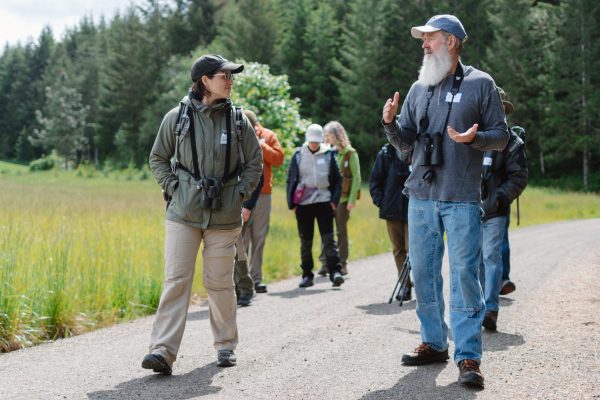Oregon funds women’s healthcare amid possibility of Roe v. Wade being overturned
Jess Hume-Pantuso, Photographer
A crowd of people, including community member Julia Lont (front), line up at the Benton County Courthouse in Corvallis, Ore. as part of a reproductive rights protest on May 5. The protest was a response to a draft opinion from the Supreme Court of the United States being leaked suggesting the landmark abortion rights case, Roe v. Wade, could be overturned.
May 14, 2022
After a leaked draft from the Supreme Court suggesting Roe v. Wade may be overturned, Oregon legislature has established laws that will fund $50 million dollars for women’s healthcare.
This funding comes from the Reproducive Health Equity Act, which is a law that expands coverage for some Oregonians to access free reproductive health services. It also improves access to abortion in ways such as requiring private healthcare in Oregon to cover abortions with no out-of-pocket costs and covering abortion services for individuals who otherwise could not receive medical assistance due to their immigration status.
The Reproductive Health Equity Act also covers other services not directly related to abortions, including voluntary sterlization, FDA approved contraception, screenings for pregnancy, STIs and cancer, as well as counseling on tobacco use.
In Corvallis, Ore., community members have responded with protest to the possible overturning of Roe v. Wade, outlining the consequences of this for people impacted by the result of Jackson Women’s Health Organization v. Dobbs—the case that the leaked draft suggesting Roe v. Wade may be overturned came from. A protest took place on May 3 at the Benton County courthouse and a walkout protest took place on May 5 on the Oregon State University campus.
“It’s a shock because this was a Supreme Court decision that Roe v. Wade has been challenged over and over again, and has been repeatedly affirmed by the court, and so it is as close to settled precedent as you can get,” said Kelsy Kretschmer, an associate professor of public policy at OSU who holds a doctorate in sociology and is an expert on women’s rights and the women’s movements.
Abortion, according to Kretschmer, has become a critical part of the feminist movement in recent decades. In the 1990s, Kretschmer said there was an increase in violence directed at abortion clinics, which she said many liberal and feminist women felt was a direct attack on women who were justtrying to get health care access and control their own destinies.
“In lots of states, abortion is legal if you can pay for it, and that becomes a huge barrier to lots of poor women,” Kretschmer said. “In Oregon, it is written into the law that Medicaid pays for the abortions of women who need Medicaid.”
Millicent Durand, former Daily Barometer contributor and community member who protested in front of the Benton County Courthouse on May 3, called for federal government representatives to do more. They also fear what would happen if this precedent is set.
“Another reason why I’m out here: If women’s rights go first, LGBT rights are next,” Durand said. “The leaked opinion said that they were going to possibly open up the door to overturn Obergefell v. Hodgens.”
Obergefell v. Hodgens was the landmark 2015 case that said the 14th Amendment requires states to license and recognize same-sex marriage. Durand said this court opinion makes them angry, as a common solution that the Democratic party offers is to vote in the elections, and, according to Durand, people voted to prevent this from happening in the first place.
“So what are they going to tell us?” Durand said. “Vote harder? Because we’re in Oregon, we can’t vote harder than we already do.”
Multiple sources in support of overturning Roe v. Wade were contacted but declined to comment.
Corvallis Representative and Oregon House Speaker, Rep. Dan Rayfield, said if Roe v. Wade were to be overturned, the right to abortion is codified in Oregon.
“We have qualified the right to abortion in Oregon and that alone is not enough, and Oregon will be continuing to work to make sure that everyone has access to reproductive health care,” Rayfield said.
According to Rayfield, Oregon should think proactively about improving abortion access.
“[Abortion] service deserts, things like that,” Rayfield said, referring to areas in the state that have limited access to abortion services. “Just because something is codified in law doesn’t always guarantee you’re going to have access, especially when you have urban parts of Oregon and rural parts of Oregon…We’re going to have to be creative on how we make sure that people do have access to this care in a proactive way.”

























































































































